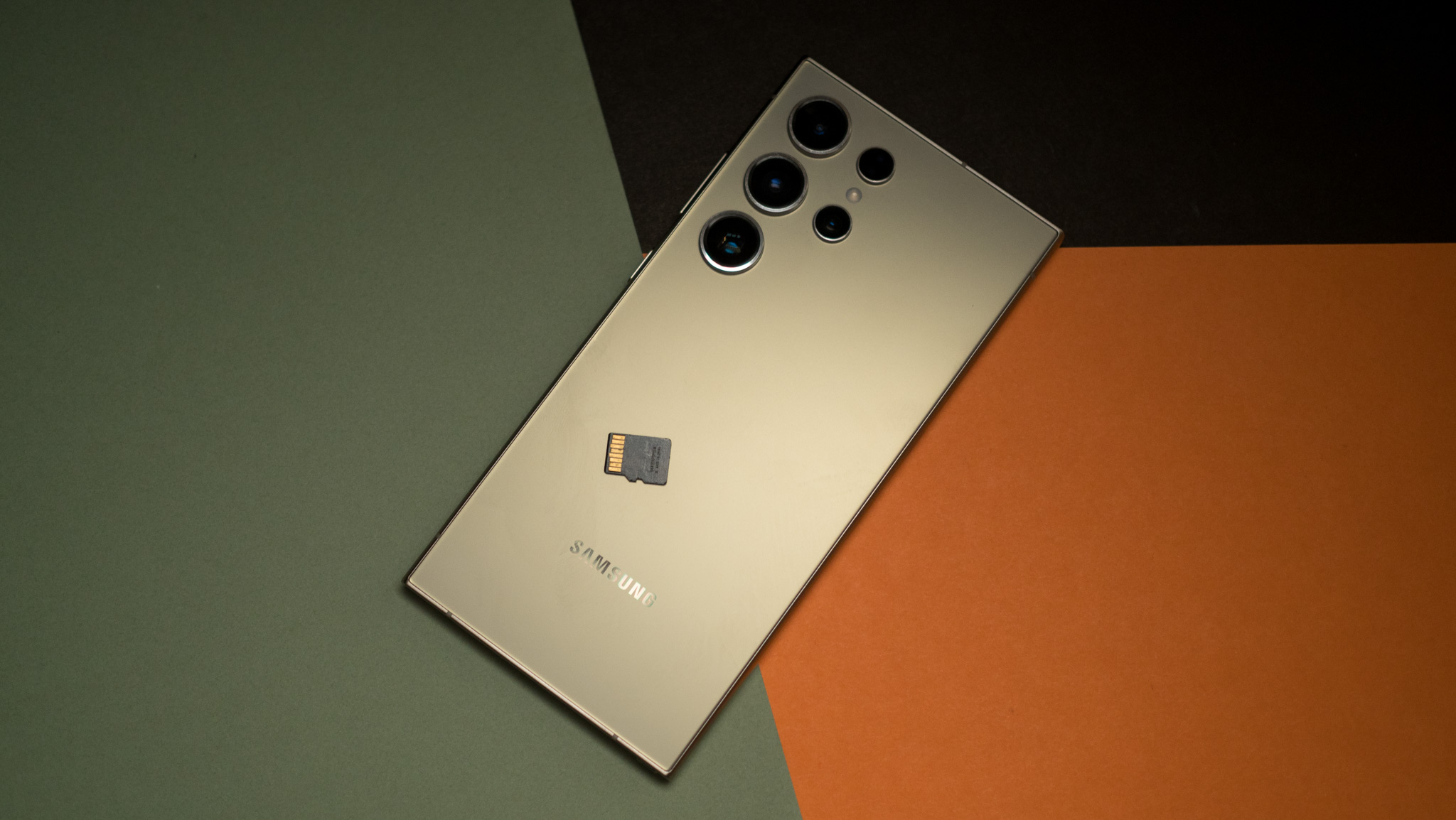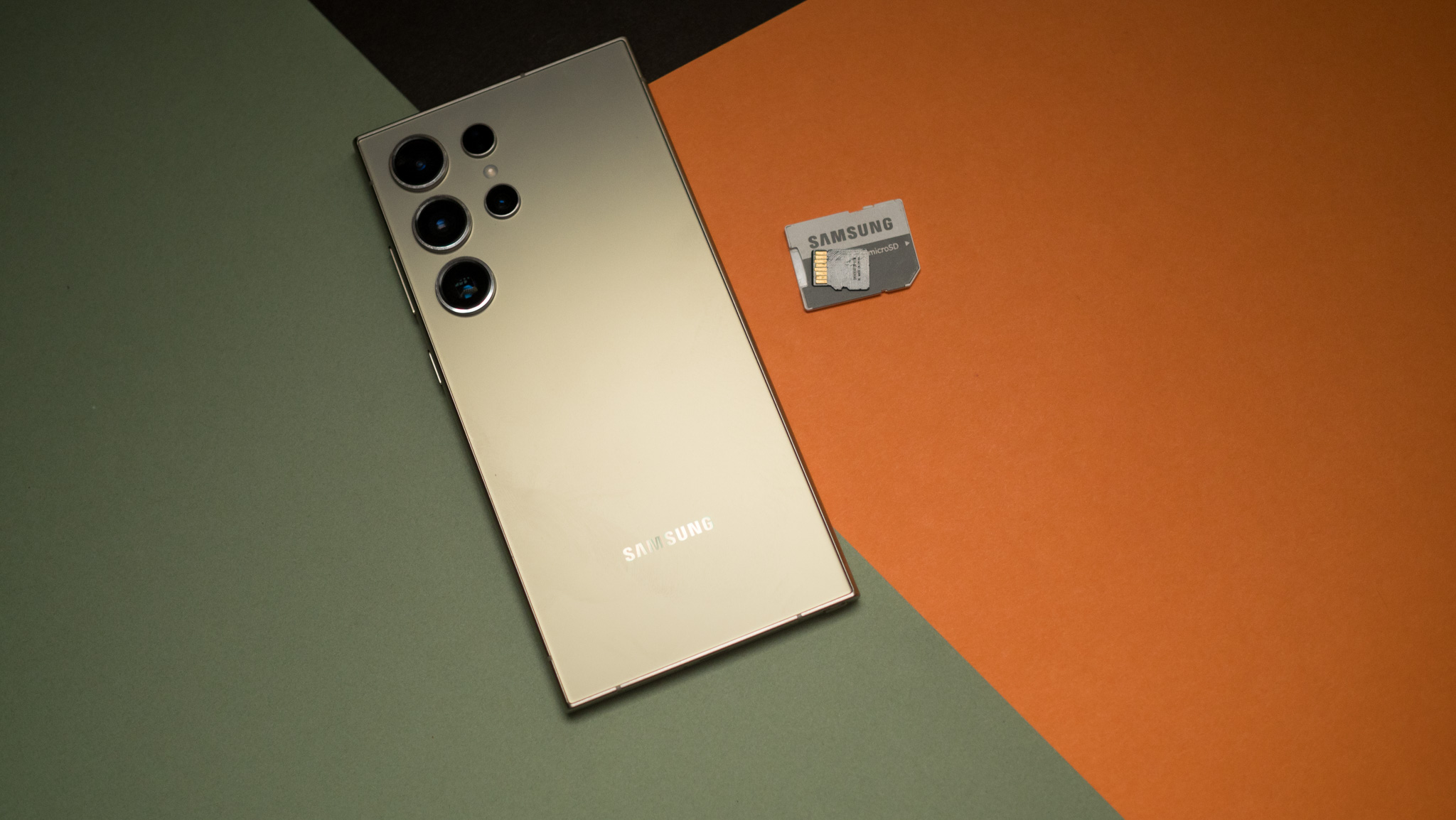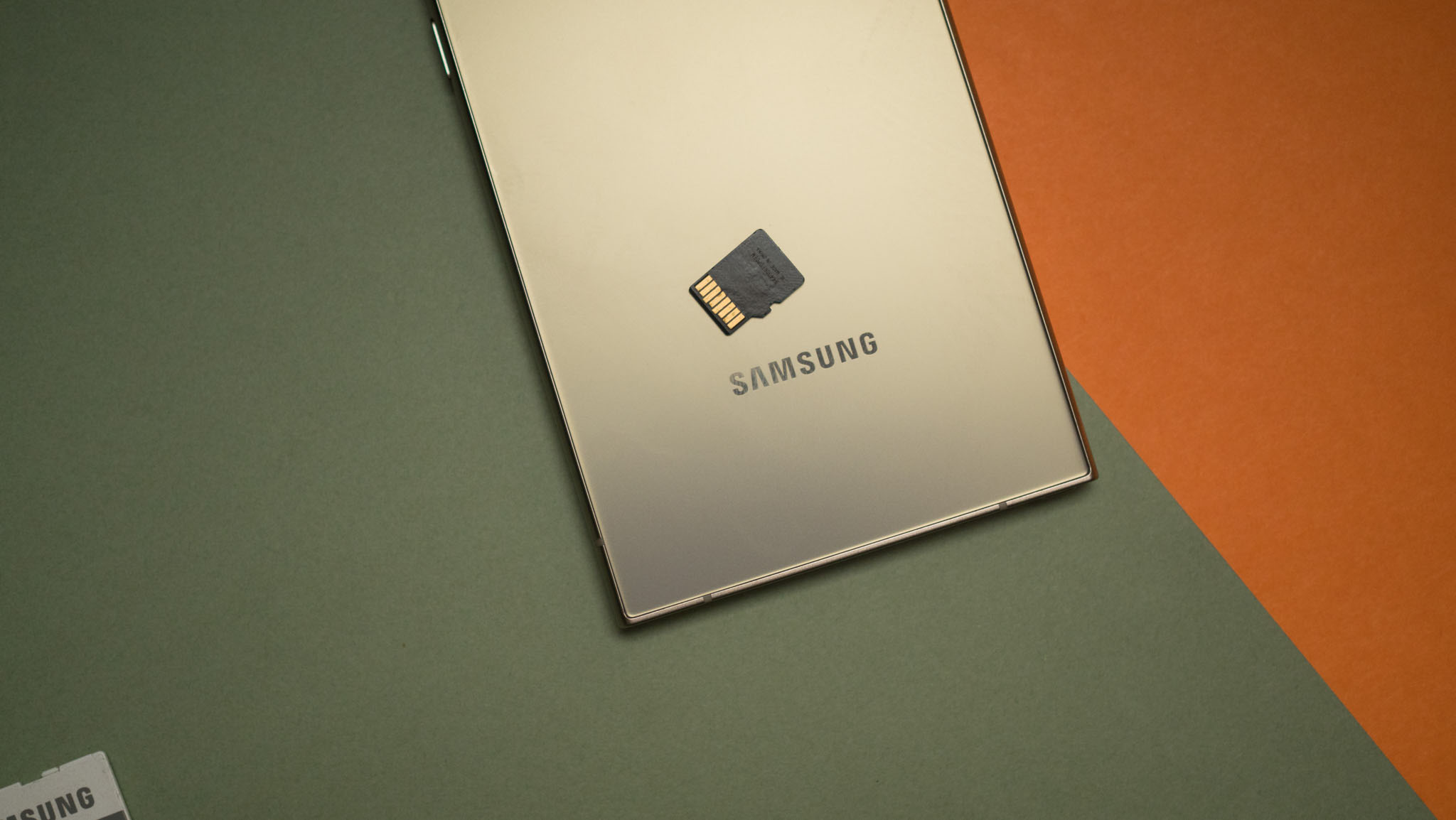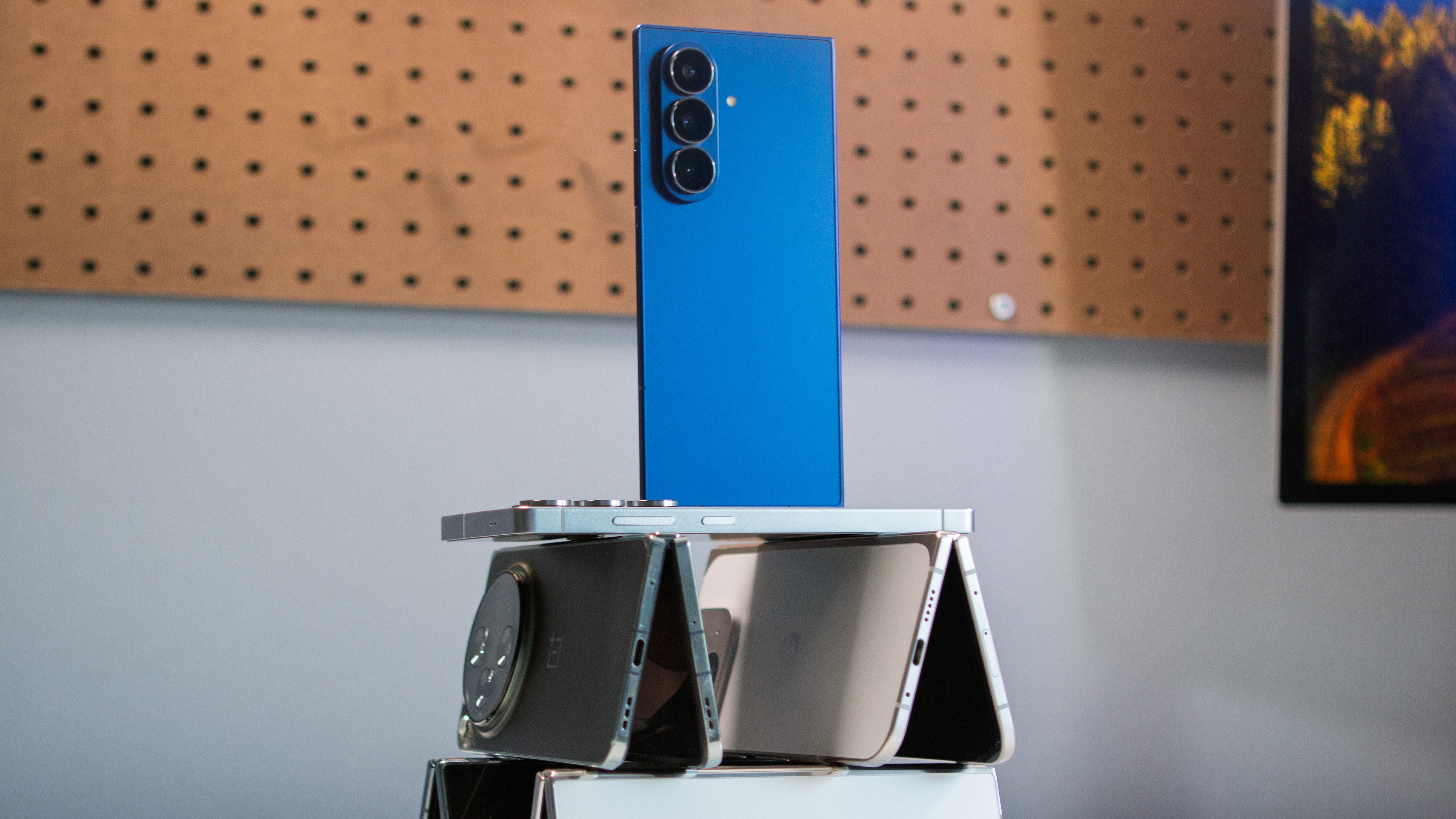Samsung made a MicroSD card that doesn't suck, but there's a problem
Samsung's new SD Express card is significantly faster than regular MicroSD cards, but it still isn't quite on the same level as UFS storage.

Samsung rolled out new MicroSD cards at the end of February, and while that isn't noteworthy on its own — the Korean brand is one of the largest manufacturers of SD cards — the new cards are quite different. They use the SD Express standard and go up to 800MB/s in sequential reads, and that's more than what you get with SATA SSDs.

In Hardwired, AC Senior Editor Harish Jonnalagadda delves into all things hardware, including phones, storage servers, and routers.
Crucially, the standard is nearly eight times faster than 104MB/s that was possible with UHS-I cards, and 312MB/s with UHS-II. The SD Express MicroSD cards start at 256GB and go up to 1TB, and they use Samsung's V-NAND tech, which is similar to what the brand uses in its regular SSDs.
Clearly, there's a lot to like with these cards, even if you discount Samsung's claims about facilitating on-device AI. But the biggest problem with the SD Express standard is that it hasn't made any mainstream headway even though it has been around for the better part of a decade, and that is unlikely to change.
What's more relevant here is that MicroSD cards are unusable on the best Android phones; sure, Samsung still makes a few mid-range Galaxy A phones that have an MicroSDXC slot, but that list is getting shorter with every generation. All phone manufacturers moved away from the standard on their flagships, and for good reason — even though SD Express has heady gains over UHS-I, it doesn't hold a candle to UFS 4.0 storage.
All flagships released in 2024 feature UFS 4.0 storage, and the standard goes up to 4,000MB/s in sequential reads — five times that of SD Express. Micron just rolled out new UFS 4.0 modules that are miniscule while delivering 4,400MB/s sequential reads, and UFS 5.0 is on the horizon.

Phone manufacturers used eMMC storage for several years, and as the standard wasn't noticeably faster than prevalent MicroSD cards, they had no issues offering expandable storage on their devices. But as UFS storage started gaining momentum nearly a decade ago, they had a dilemma: the standard delivered performance that was similar to NVMe SSDs, significantly outmatching MicroSD.
Brands could continue to offer MicroSD slots on their devices, but that would have meant a noticeable difference in performance between the onboard storage and expandable modules, or eschew the port altogether — which is what we ended up with. This situation isn't going to change with the introduction of faster MicroSD cards; brands stand to make much more money by upselling users to buy higher-storage variants of phones.
Get the latest news from Android Central, your trusted companion in the world of Android
I like the idea of expandable storage; I use all the M.2 slots on my gaming machine, I slotted in a 2TB SSD in the PlayStation 5 to augment the limited storage available on the console, and put in a 2TB M.2 2230 SSD in the Steam Deck as soon as I got the handheld. But I never felt the need to do so on a phone — even though it would make transferring data to a new device a lot easier.

That's the second part of why most phones don't have MicroSD card slots: reliability. I've had a few instances in the past where MicroSD cards failed, and I ultimately ended up losing the data stored on those cards. So when I got the LG G4 a decade ago, I decided to not bother with MicroSD cards at all and started backing up the data on my phone to external sources — Google Photos on the cloud, and a NAS within my home network.
Unless a better standard comes along, it's unlikely phone manufacturers will consider offering expandable storage on their devices. Even then, I doubt most brands will care; ports are at a premium these days, and iPhones don't even have SIM card trays (thankfully only in North America). Given the state of UFS storage and the direction the industry is headed in, expandable storage isn't making a comeback.

Harish Jonnalagadda is Android Central's Senior Editor overseeing mobile coverage. In his current role, he leads the site's coverage of Chinese phone brands, networking products, and AV gear. He has been testing phones for over a decade, and has extensive experience in mobile hardware and the global semiconductor industry. Contact him on Twitter at @chunkynerd.
You must confirm your public display name before commenting
Please logout and then login again, you will then be prompted to enter your display name.
